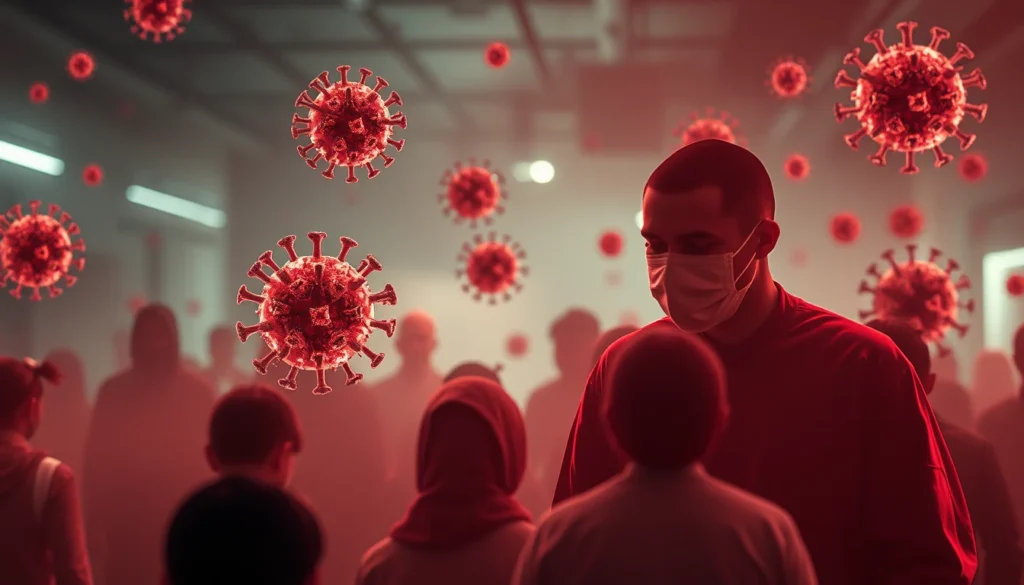
As we step into 2025, China is dealing with a surge in human metapneumovirus (HMPV) cases, raising alarms worldwide. Five years after the Covid-19 pandemic, hospitals in China are struggling to keep up, with reports of overcrowded wards and overtaxed crematories. Alongside HMPV, other viruses like influenza A, Mycoplasma pneumoniae, and Covid-19 are also circulating. While social media posts hint at a state of emergency, no official statement has been made.

HMPV, first discovered in 2001, is part of the Pneumoviridae family and is closely related to the respiratory syncytial virus (RSV). It’s one of the most common causes of respiratory illnesses, especially during the colder months, and usually affects the upper respiratory system. In some cases, it can lead to more severe infections, particularly in high-risk groups.
What Is HMPV?
HMPV is a highly contagious virus that spreads through respiratory droplets and contact with contaminated surfaces. It can survive on surfaces for hours, making it easier to spread in crowded or shared spaces. Like RSV and influenza, HMPV can cause a wide range of symptoms, from mild cold-like issues to more serious respiratory problems.
Symptoms of HMPV
The symptoms of HMPV are similar to those of the flu or a common cold. It spreads when an infected person coughs, sneezes, or comes into close contact with others. Common symptoms include:
- Cough
- Fever
- Nasal congestion
- Sore throat
- Shortness of breath
- Fatigue and muscle aches
The virus typically has an incubation period of 3 to 6 days, and symptoms can last from a few days to a week. In more severe cases, symptoms may worsen to include wheezing, difficulty breathing, and even a bluish tint to the skin due to low oxygen levels.
Who Is Most at Risk?
Although anyone can catch HMPV, certain groups are more likely to experience severe illness, including:
- Children under five
- Adults over 65
- People with weakened immune systems (due to conditions like cancer, HIV, or organ transplants)
- Those with chronic respiratory or heart conditions, such as asthma, COPD, or heart disease
Potential Complications
In severe cases, HMPV can lead to complications like:
- Bronchiolitis (inflammation of the small airways in the lungs)
- Bronchitis (inflammation of the bronchial tubes)
- Pneumonia (lung infection)
- Worsening of asthma or COPD
- Ear infections (otitis media)
How to Protect Yourself
Though there is no specific antiviral treatment or vaccine for HMPV yet, you can lower your risk of getting sick with these simple tips:
- Wash your hands often with soap and water for at least 20 seconds.
- Practice good cough and sneeze etiquette by covering your mouth and nose with a tissue or elbow.
- Wear a mask in crowded or high-risk areas.
- Avoid close contact with sick individuals.
- Don’t touch your face—especially your eyes, nose, and mouth—if your hands aren’t clean.
- Stay home if you’re feeling sick to avoid spreading the virus to others.
Global Impact
This outbreak underscores the ongoing challenges in managing respiratory viruses, particularly in crowded areas. Health organizations like the WHO are ramping up surveillance and collaborating to track and control HMPV’s spread. Researchers are also working on developing vaccines and treatments to better handle this and similar viruses.
Disclaimer: This article is for informational purposes only and is not a substitute for medical advice. Always consult with a healthcare provider for personalized guidance.



